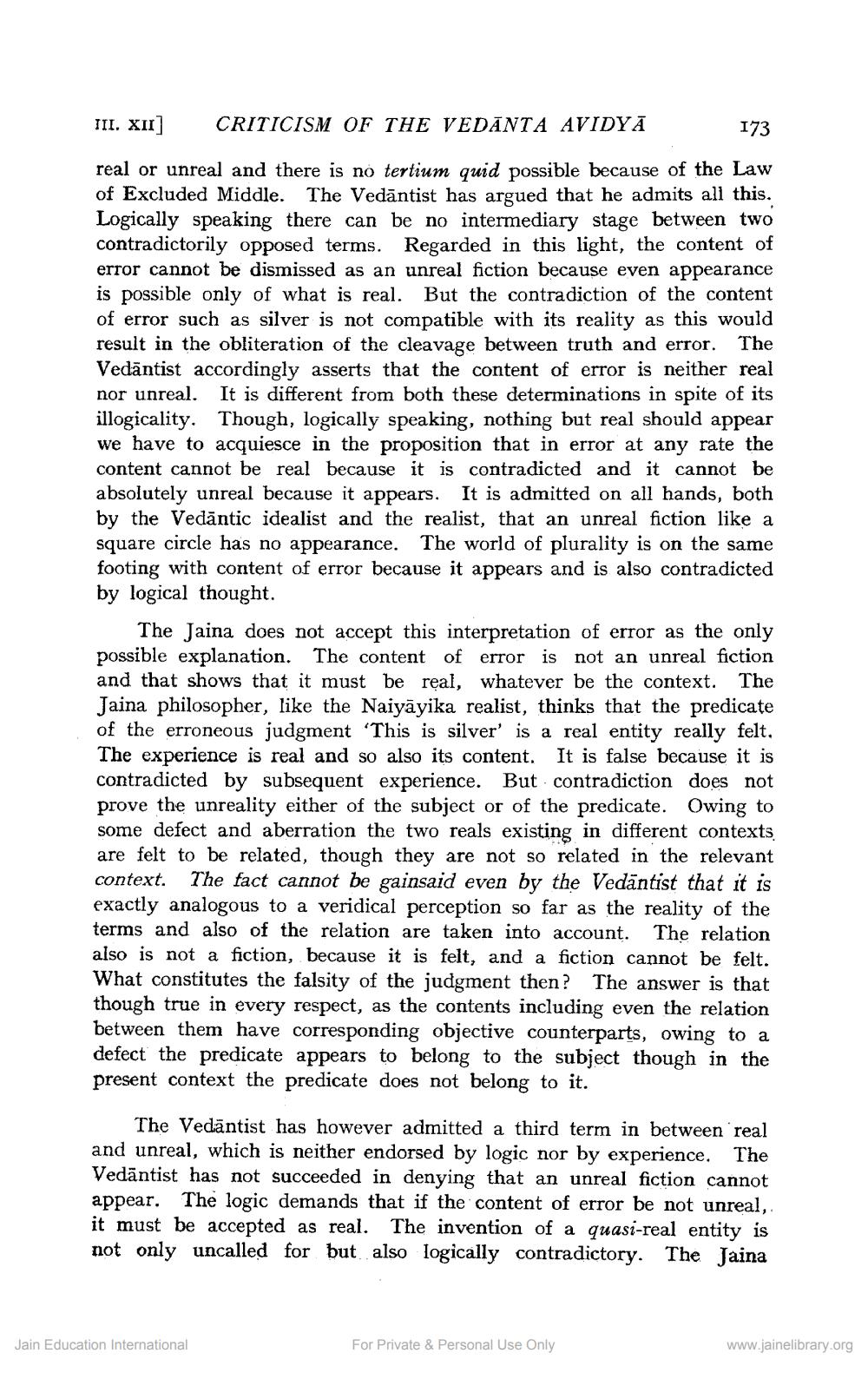________________
TII. XII]
CRITICISM OF THE VEDĀNTA AVIDYA
173
real or unreal and there is no tertium quid possible because of the Law of Excluded Middle. The Vedāntist has argued that he admits all this. Logically speaking there can be no intermediary stage between two contradictorily opposed terms. Regarded in this light, the content of error cannot be dismissed as an unreal fiction because even appearance is possible only of what is real. But the contradiction of the content of error such as silver is not compatible with its reality as this would result in the obliteration of the cleavage between truth and error. The Vedāntist accordingly asserts that the content of error is neither real nor unreal. It is different from both these determinations in spite of its illogicality. Though, logically speaking, nothing but real should appear we have to acquiesce in the proposition that in error at any rate the content cannot be real because it is contradicted and it cannot be absolutely unreal because it appears. It is admitted on all hands, both by the Vedāntic idealist and the realist, that an unreal fiction like a square circle has no appearance. The world of plurality is on the same footing with content of error because it appears and is also contradicted by logical thought.
TIT
The Jaina does not accept this interpretation of error as the only possible explanation. The content of error is not an unreal fiction and that shows that it must be real, whatever be the context. The Jaina philosopher, like the Naiyāyika realist, thinks that the predicate of the erroneous judgment 'This is silver' is a real entity really felt. The experience is real and so also its content. It is false because it is contradicted by subsequent experience. But contradiction does not prove the unreality either of the subject or of the predicate. Owing to some defect and aberration the two reals existing in different contexts are felt to be related, though they are not so related in the relevant context. The fact cannot be gainsaid even by the Vedāntist that it is exactly analogous to a veridical perception so far as the reality of the terms and also of the relation are taken into account. The relation also is not a fiction, because it is felt, and a fiction cannot be felt. What constitutes the falsity of the judgment then? The answer is that though true in every respect, as the contents including even the relation between them have corresponding objective counterparts, owing to a defect the predicate appears to belong to the subject though in the present context the predicate does not belong to it.
The Vedāntist has however admitted a third term in between real and unreal, which is neither endorsed by logic nor by experience. The Vedāntist has not succeeded in denying that an unreal fiction cannot appear. The logic demands that if the content of error be not unreal, it must be accepted as real. The invention of a quasi-real entity is not only uncalled for but also logically contradictory. The Jaina
Jain Education International
For Private & Personal Use Only
www.jainelibrary.org




